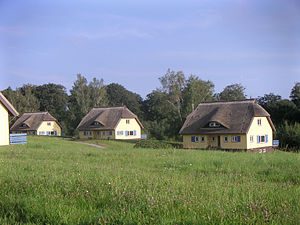Rental properties that qualify as a Furnished Holiday Letting (FHL) are subject to special tax rules. However, the rules are complex and must be carefully applied and considered each tax year.
To qualify as a FHL a property must broadly meet two conditions:
- It must be located in the UK or the European Economic Area (EEA);
- It must be furnished with sufficient furniture for normal occupation by the visitors.
For a landlord it is essential to keep separate records for FHLs located in the UK and FHLs located in EEA countries as any profits from FHLs in the UK will be taxed as a single rental business and profits from FHLs located in EEA countries will be taxed as a further single rental business.
Any losses realised from a UK FHL rental business can only be offset against profits from the same business in later years. The same principle applies for the FHL rental business located in EEA countries. As such, landlords cannot offset losses of one FHL business against the profits of the other if they have both a UK and an EEA rental business.

Meeting the occupancy conditions
The occupancy conditions for FHLs are quite complicated and as such landlords need to ensure that they keep timely records. In summary there are three occupancy conditions which must be met each tax year:
- The ‘pattern on occupation’ condition – landlords must not let the property for periods that exceed 31 continuous days for more than a total of 155 days during the year (i.e. if there were six letting periods of 35 days each, this means the property would be let out for a total of 210 days during the year and will not qualify as a FHL);
- The ‘letting’ condition – the property must be let out as furnished holiday accommodation for at least 105 days in the year to the public (as such lettings to friends or family at less than the commercial rent are not included in the total count) and long-term lets of more than 31 days are not included unless the only reason the stay exceeded 31 days was due to unforeseen circumstances; and
- The ‘availability’ condition – the property must be available for letting as furnished holiday accommodation for at least 210 days in the year, this does not include any days where the landlord is staying in the property.
- If a landlord meets the pattern on occupation and availability conditions but fails the letting condition then there are two elections available that may help their position:
- Averaging election
Landlords with more than one holiday property could use an average of the total number of days the properties have been let during the year (i.e. if a total of five properties were let for a total of 900 days the average number of days will be 180 days per property and the properties will meet the letting condition).
- Period of grace election
It might also be possible for a landlord to make a period of grace election if they genuinely intended to meet the letting condition but for some reason fail to do so in a particular year. The election can only be made if the landlord has met the letting condition in the year before the year of the election.
Tax treatment of FHLs
There are various tax advantages for FHL owners:
- Capital allowances – FHL owners can claim capital allowances for expenses related to capital expenditure such as furniture, fittings and fixtures. This is not the case for ordinary residential property landlords.
- Entrepreneurs’ Relief – on disposal of a FHL landlords should be able to claim Entrepreneurs’ Relief and take advantage of the reduced capital gains tax rate of 10% (on the first £10m of qualifying lifetime gains) provided the relevant conditions are met. Advice should be taken as to whether the necessary conditions are met on a sale.
- Roll-over Relief – landlords of FHLs can defer chargeable gains on the disposal of a FHL property provided that a qualifying business asset is purchased with the proceeds.
- Interest cost relief – the restriction of relief for finance costs on residential properties from April 2017 will not apply to FHLs. As such landlords of FHLs will benefit from full relief for qualifying interest costs.
- Classification as ‘relevant earnings’ – profits realised from FHLs are classed as relevant earnings for pension contribution purposes unlike profits from ordinary residential properties. As such, landlords can contribute the profits from FHLs to a qualifying pension scheme and potentially claim tax relief on the contribution.
Ceasing to qualify as a FHL
The property will cease to be a FHL if it is sold, it is used for the private occupation of the landlord or the property fails to meet the letting condition for a tax year even after considering the averaging and period of grace elections discussed above.
If the property ceases to be a FHL then the specific tax treatment outlined above will no longer apply.
Whilst every effort has been made to provide information current at the date of publication, tax laws around the world change constantly. Accordingly, the material should be viewed only as a general guide and should not be relied on without consulting your local KPMG tax adviser for the specific application of a country’s tax rules to your own situation.
If you need assistance with any related matters, please do e-mail Simon at simon.johnson@kpmg.co.uk.
Contact details for Simon
